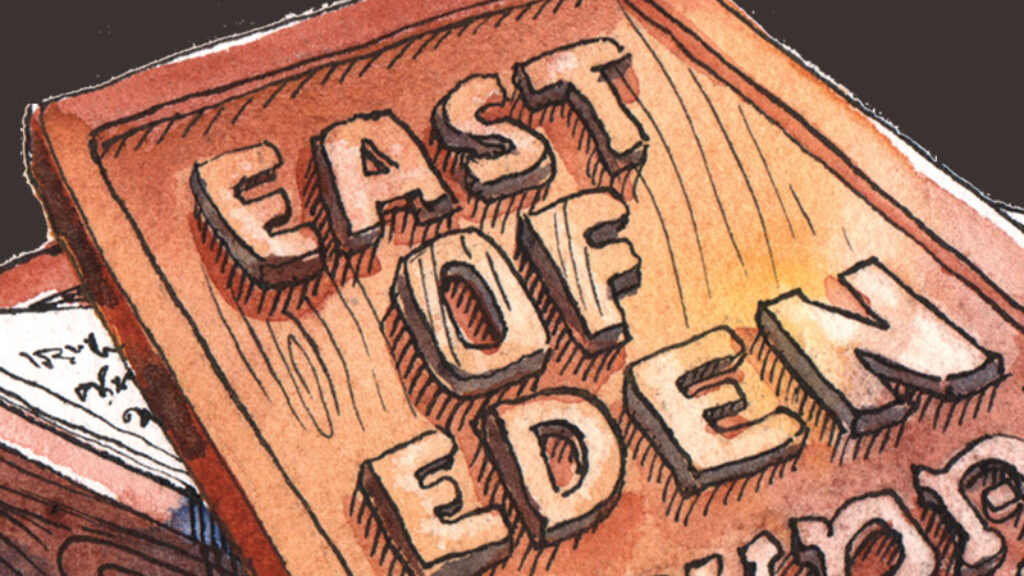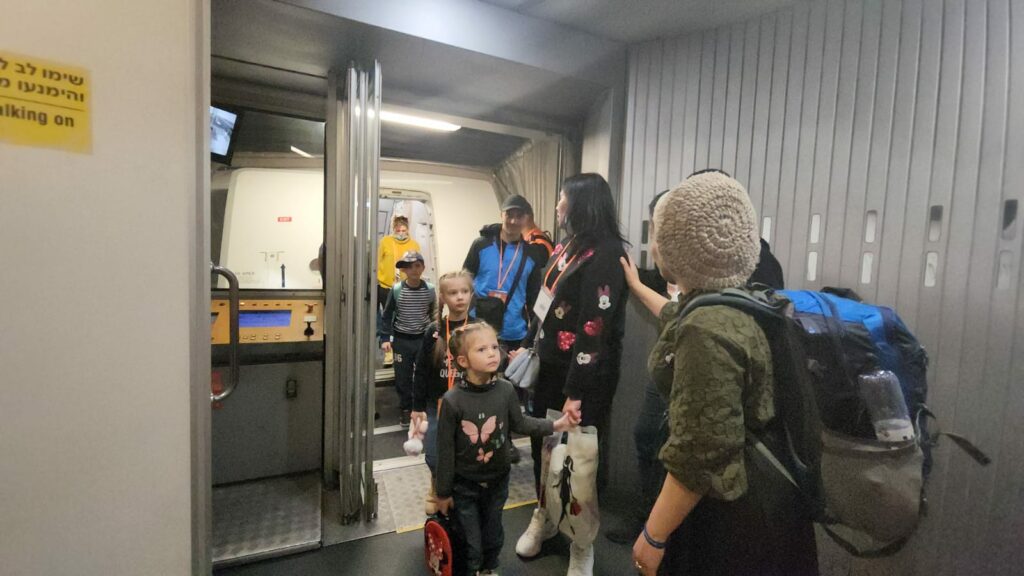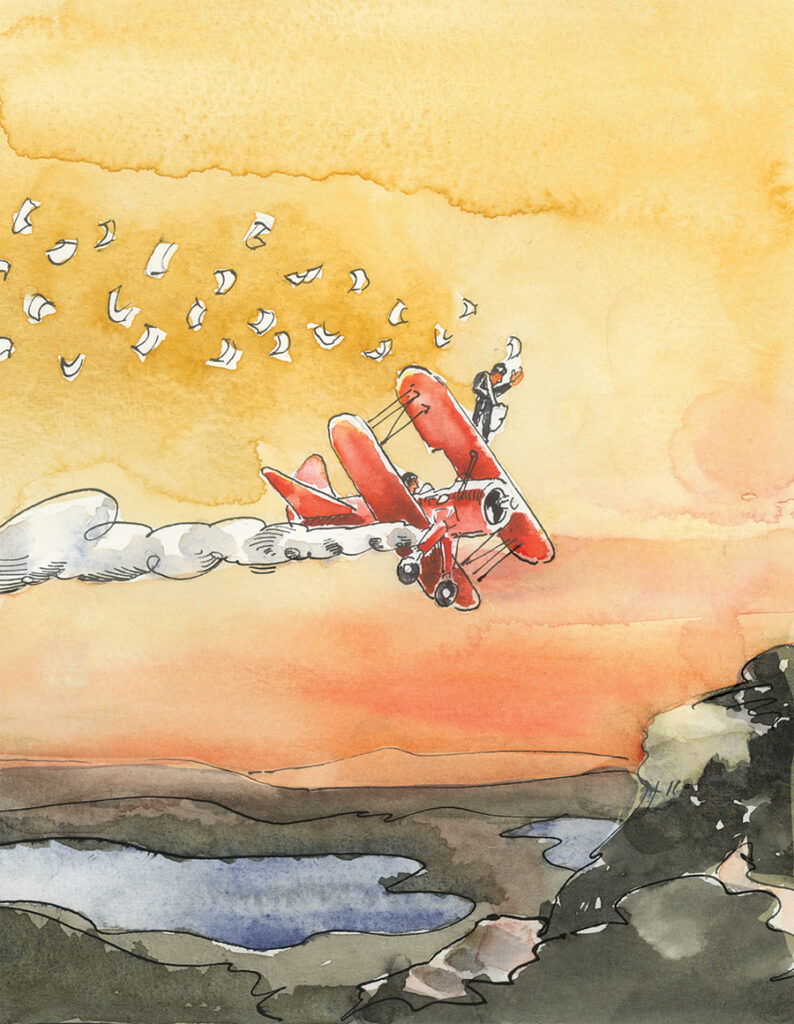Operation Hebrew Camp
I was looking into the history of Hebrew education in America when someone told me to go chat with Ray Arzt about the early days of Camp Massad. Arzt is a retired Jewish educator now living in Jerusalem, so I took a bus to French Hill and asked him about spending summers where even the baseball games were played in Hebrew. And that is how I heard the story of an intra-Jewish aerial assault in the Poconos.
In 1950, Moses Feinstein, director of New York’s Herzliah Hebrew Teachers’ Institute, was on a tour of Pennsylvania’s Jewish summer camps. Camp Ramah had for a while flown the Star of David over its grounds, but the blue-and-white flag was now the official symbol of the nascent Jewish state. Ramah’s director, Solomon Feffer, was apparently worried about accusations of dual loyalties, so he switched out the flag for a homemade standard bearing the ten commandments. Feinstein, a Hebrew poet and committed Zionist, was outraged.
Feinstein reported the Ramah flag exchange to a group of counselors at his next stop, Camp Massad, and the news sent the zealous youths into orbit. The group included Arzt (whose father, Max, was then the vice chancellor of the Jewish Theological Seminary) and a boy whose brother had fought the British with Avraham Stern’s Lehi. They wrote up an indictment in florid Hebrew, printed five hundred copies, and hired a local pilot and his puddle jumper to fly them over Camp Ramah. Arzt, who knew the Ramah grounds from his previous summers there (and would later serve as the director of Camp Ramah New England) pointed out the target. At his signal, his friend Abie Krausher tossed stacks of leaflets out of the plane while an anxious Louis Bernstein said tehillim to secure their safe return.
The airborne trio did get safely back to camp, but unfavorable winds blew their payload off course. Campers at Massad’s second campus, which was closer to Ramah, heard about the mishap and successfully completed another incursion—this time on the ground.
No American Jewish camp nowadays can equal the ebullient Zionism or fidelity to Hebrew that propelled Arzt and Co. into the sky. From the early 1940s until the early 1980s, Camp Massad conducted perhaps America’s most interesting experiment in Jewish education on three campgrounds with hundreds of campers. When they weren’t getting invoiced, even Massad parents were expected to function in modern Hebrew—a Hebrew-language advertisement for the summer of Arzt’s adventure invited them to send their children to a “small Hebrew world” governed with a generous halakhic traditionalism and an ardor for Israel.
The unsanctioned aerial mission to Ramah was extreme, even for Massadniks, but also characteristic. In Elena Neuman Lefkowitz’s excellent documentary about Massad, Rabbi David Eliach called the camp a “Zionist mikvah.” In addition to his years running the Yeshiva of Flatbush, Eliach served as Massad’s Rosh Tarbut—head of culture. Every summer, he and his colleagues would host the socialist Zionists of Hashomer Hatzair to befriend, eat, and argue with their peers in Jabotinsky’s right-wing Betar movement. And to do it all in Hebrew, the use of which was enforced by what longtime camper Hillel Halkin wryly termed a “full-fledged police state” under the camp’s director Shlomo Shulsinger.
Shulsinger was born in pre-State Jerusalem, moved to the United States in the 1930s, and taught at Flatbush for a few years before founding Massad. In a 1959 polemic I found in Jerusalem’s Central Zionist Archives, Shulsinger praised Hebrew classes at Jewish day schools while lamenting that a child sitting in them also “lives in a surrounding devoid of Hebrew content. Television, radio and motion pictures, magazines and games,” to say nothing of “sport, science, and other spheres of interest.” A Hebrew camp would impel children not just to study but to live in the language.
Shulsinger saw to it that Hebrew governed camp life in sickness as well as in health. Jay Lefkowitz recalls being laid up one night in the infirmary after an allergic reaction. A concerned Shulsinger visited to ask after the patient’s condition, who said not to worry, Shlomo, he was going to be fine. But Shulsinger would only listen to the youngster’s medical report in Hebrew—“rak b’ivrit, Jay, rak b’ivrit!” Decades later, two Massad alumni working as school administrators in Israel met for a pedagogical chat and found themselves struggling with technical vocabulary. “Why are we struggling?” one of them asked. “Shlomo isn’t here—we can do this in English.”
The Massad day began at 7 a.m. with a broadcast of the day’s weather and schedule. Bunk counselors like David Berger yelled takum min hamitah! to get their groggy campers out of bed. Berger, now a distinguished medieval historian and the former dean of Yeshiva University’s Revel graduate school, remembers one camper who grunted at him in illicit English: “You call this a bed?!” Breakfast—and lunch and dinner—were served to those campers who could express their preferences in Hebrew. Suitably nourished (or not: one camper still remembers fearing for his stomach upon forgetting how to Hebraize his entrée), Massadniks gardened, prayed, swam, painted, and even played the national pastime in Hebrew. If you chided your teammate for an “error” instead of a shgiyah, or praised him as “clutch” instead of mishbar, the other team’s batter would be awarded an extra ball (kadur). One afternoon a week, counselors sat their campers on the grass for a discussion (sicha) about Zionist heroes—Herzl, Henrietta Szold, Hannah Szenes—for whom the camp named its buildings. Evenings sometimes ended with Hebrew-language performances of current plays like South Pacific or Zionistic singalongs, which occassionally led to mixed dancing.
In the late 1940s, when Arzt was a junior counselor, a writer named Daniel Persky visited the camp for a few days. Persky had grown up in the pre-State Yishuv before moving to America, and when he arrived at the campgrounds, he felt as though he’d left the diaspora for a “solitary island” on which dwelled “a happy, confident nation, joyous and content, absorbed with the spirit of Judaism . . . speaking, day and night, only Hebrew.” The library was stocked with contemporary Hebrew literature and with copies of the two Hebrew-language periodicals published by the Massadniks. Impressed but still skeptical, Persky scoured the grounds looking for campers speaking English. Eventually, he found two youngsters on a hill in flagrante delicto.
Accounts differ on the reasons for Massad’s decline and final closure in 1981. Denominational camps like the Conservative movement’s Ramah and the Modern Orthodox Camp Moshava attracted would-be Massadniks away from Shulsinger’s pluralistic milieu. Assimilation attracted some children of the mid-century American Hebrew Haskalah (and their children) away from Jewish institutions altogether. And Shulsinger himself retired to Israel in 1977. Whatever the reason, American Jews lost an institution that invited their children to be both ambitiously and merely Jewish. Campers showed up certified by their heritage alone, which they were then required to cultivate in its native language—on land, in the camp’s lake, and sometimes in the air.
Comments
You must log in to comment Log In
Suggested Reading

The Most Important Word in the World
For a moment, a literary giant and talmudic genius sparred over the implications of a biblical phrase.

Exodus from Kishinev
From Kishinev, Moldova to Israel with Ukrainian Jewish refugees.
Culture and Education in the Diaspora
After 1948, Ben-Gurion strongly urged young American Jews to make aliyah. In 1951, Hayim Greenberg, head of the Jewish Agency's Department of Education and Culture, came to Jerusalem to argue for the dignity of Jewish life in the diaspora—in Yiddish.
The Jewish Critic and the Devil’s Point of View
We have never met this Mendele before, but he expects us to trust him, appreciate his wit, catch his references, and share his attitudes. In a few deft lines, the author created a figure so democratic you don’t have to look up to him, so familiar you don’t have to fear him, and so appealing you won’t realize you’re being flogged.

Froma
I was a Massadnik as a Madrichah with Ray Artz and the rest of the gang; first in Massad B and then in Massad B. I met my late husband, George and we became a Massad Zug and were married for 63 years until 2017. Those were indeed the glory years, as the author well describes. How many of us still remain? So many indelible memories.
Michel Araten
I attended Massad Beth for 5 years beginning in 1948. To promote the use of Hebrew we had to speak a certain amount of Hebrew every day and for which an "ayin" for ivrit was noted. At the end of the summer, if we had sufficient daily ayins we received a pin with an ayin. One day, I apparently did not speak sufficient Hebrew to be awarded an ayin. In the morning the counselors woke me up and said that since I spoke Hebrew in my sleep, they decided to award me one anyway.